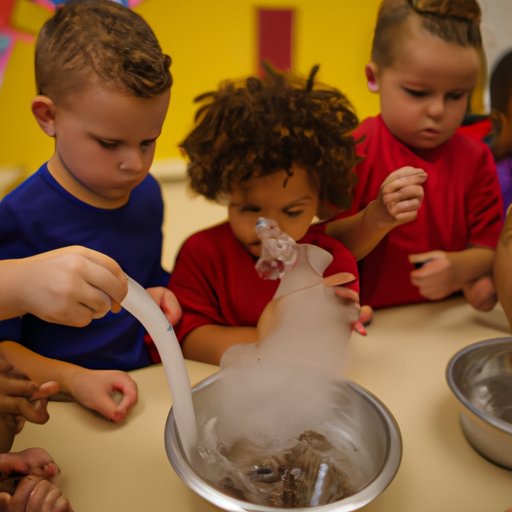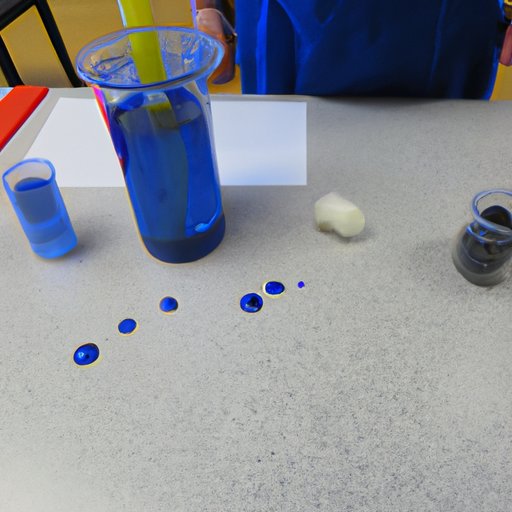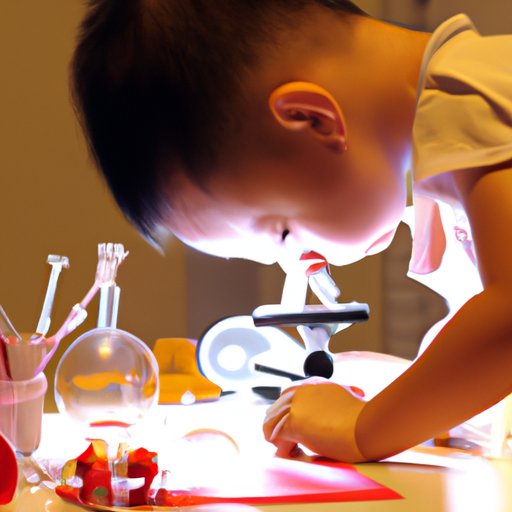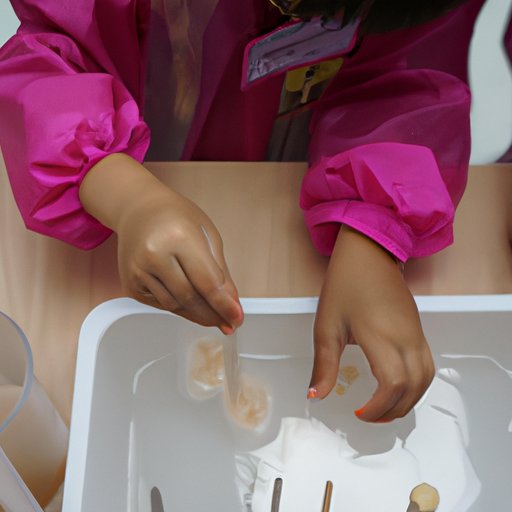Introduction
Science education is a vital part of early childhood development, but it’s often overlooked in the early years of schooling. In this article, we will explore what science kindergarten is and the value of teaching science at the kindergarten level. We’ll look at how science can help develop critical thinking skills in children, as well as how to make science fun and engaging for young learners. Finally, we’ll discuss the importance of science education in early childhood and provide some simple experiments that can be used to introduce basic scientific principles.

Exploring the Basics of Science in Kindergarten
Science kindergarten is an important part of early childhood learning. It helps to introduce children to the world around them in an age-appropriate way, while also helping to develop their critical thinking skills. But what is science and how does it relate to kindergarten?
Science is the study of the natural world around us. It includes topics such as biology, chemistry, physics, earth science, and more. Science kindergarten introduces these topics to young learners in an age-appropriate way, focusing on exploration and discovery. By introducing children to the basics of science, they can begin to develop critical thinking skills, such as problem solving and observation.
How Science Helps Develop Critical Thinking in Kindergarteners
One of the most important benefits of science education in kindergarten is that it helps to develop critical thinking skills. Teaching scientific thinking through inquiry is one of the best ways to foster critical thinking in young learners. Inquiry-based learning involves asking questions and exploring possible answers. This encourages children to think critically about the world around them, which can help them to better understand and solve problems later in life.
In addition to teaching scientific thinking, it’s also important to make connections between science and everyday life. For example, when discussing the weather, teachers can talk about how temperature affects air pressure or how different types of clouds form. Making these connections helps children to see how science is relevant to their lives and can help to spark their curiosity.

Making Science Fun and Engaging for Kindergartners
It’s important to make science fun and engaging for kindergartners if you want them to be interested in it. One of the best ways to do this is through play-based learning. Through play, children can learn about science while having fun. For example, you can create a pretend “science lab” where children can use props, such as beakers and test tubes, to explore different scientific concepts.
Another way to make science fun is by creating hands-on experiences. When children can touch and manipulate objects, they are more likely to remember the lesson. For example, you can have them plant a garden and observe how plants grow or create a water cycle experiment with cups, sponges, and food coloring.

Understanding the Importance of Science Education in Early Childhood
Science education in early childhood is vitally important for children’s development. It helps to foster curiosity and exploration, which can lead to a lifelong love of learning. Furthermore, studies have shown that science education in early childhood can have a positive effect on later academic performance. A study conducted by the National Institute of Health found that students who had received science education in kindergarten were more likely to score higher on standardized tests in fourth grade than those who had not.
In addition to its cognitive benefits, science education can also have developmental benefits. It can help to promote problem-solving skills, creativity, and collaboration, all of which are essential for success in school and beyond.
Science Experiments for Kindergarteners to Discover the World Around Them
One of the best ways to get young learners interested in science is to let them explore and discover the world around them. Simple experiments are a great way to introduce basic scientific principles. For example, you can have children observe the effects of surface tension by filling a cup with water and dropping a penny into it. Or, you can demonstrate the power of condensation by having children place a wet cloth over a warm bowl.
Experimentation is also a great way to encourage curiosity and exploration. By allowing children to explore and experiment, they can gain a deeper understanding of the world around them. For example, you can have them build a volcano using baking soda and vinegar or explore the effects of gravity by dropping different objects from a height.
Conclusion
Science education in kindergarten is an essential part of early childhood learning. It helps to introduce children to the world around them in an age-appropriate way, while also helping to develop their critical thinking skills. Teaching science can be made fun and engaging for young learners through play-based learning and hands-on experiences. Furthermore, science education in early childhood has been shown to have a positive effect on later academic performance and can help to promote problem-solving skills, creativity, and collaboration. By providing opportunities for exploration and discovery, science can help children to gain a deeper understanding of the world around them.
(Note: Is this article not meeting your expectations? Do you have knowledge or insights to share? Unlock new opportunities and expand your reach by joining our authors team. Click Registration to join us and share your expertise with our readers.)
